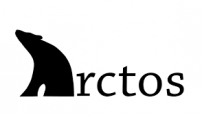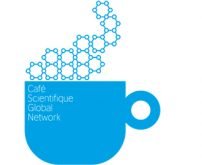Arctic Links
-
A-TWAIN Long-term variability and trends in the Atlantic Water inflow region
The primary objective of this project, funded by the Fram Centre “Arctic Ocean” flagship, is to understand how heat from the Atlantic Water influences the Arctic Ocean sea ice cover, but also to provide data for understanding the playing field for some of the key actors in the ecosystem, and components of the carbon system. A-TWAIN was established to gain understanding on how the inflowing current system is distributed at different depths along the continental slope, how it responds to local, short lived atmospheric changes, and how it varies on seasonal and inter-annual timescales.
-
Akvaplan-Niva, Norway
Akvaplan-niva provides expert knowledge and advice on the environment and on aquaculture. Their mission is to integrate research, decision support and technical innovation to secure economic value and safe environmental operations for businesses, authorities, and other clients worldwide. The service portfolio includes environmental monitoring surveys, impact and risk assessments, emergency preparedness, decision support services, Arctic environmental research, aquaculture design and management, R&D on new aquaculture species, and a number of accredited environmental, technical, and analytical services.
Research organisations and programmes
View Link: http://www.akvaplan.niva.no/en/
-
Alfred Wegener Research Institute (AWI), Germany
As a Helmholtz centre for polar and marine research the Alfred Wegener institute works above all in the cold and temperate regions of the world. Together with numerous national and international partners we are involved to decipher the complicated processes in the “system of earth”. Our planet is in a radical climate change. The pole areas and seas change. At the same time they play a central role in the global climate system. How does the planet earth develop? Do we observe short-term variations or long-term trends? Polar and marine research has always been a fascinating scientific challenge. Today it is also a piece of futurology.
Research organisations and programmes
View Link: https://www.awi.de/en.html
-
Arctic Council
The Arctic Council is the leading intergovernmental forum promoting cooperation, coordination and interaction among the Arctic States, Arctic indigenous communities and other Arctic inhabitants on common Arctic issues, in particular on issues of sustainable development and environmental protection in the Arctic.
International/regional organisations
View Link: http://www.arctic-council.org/index.php/en/
-
Arctic in Rapid Transition (ART)
Arctic scientific Network developed and steered by early-career scientists, which aims at studying the impact of environmental changes on the Arctic marine ecosystem. ART has a focus on bridging across time-scales, by incorporating paleo-studies with modern observations and modelling. Initially endorsed by the IASC MWG, ART recently transited to a new status by becoming an official IASC Network. ART is now in the process of broadening its scientific vision to address the changing marine realm as an integrated system fully ramified with other components of the Arctic. Within this framework, ART will continue to propose inter-disciplinary workshops targeted to students and post-docs, and will support the development of joint projects and collaborations that should deliver innovative knowledge on biogeochemical and ecological implications of Arctic changes
International/regional organisations
View Link: http://iasc.info/networks/arctic-in-rapid-transition
-
Arctic Monitoring and Assessment Programme (AMAP)
AMAP is a working group of the Arctic Council. It provides reliable information on the status of, and threats to, the Arctic environment. It also provides scientific advice on actions to be taken to support Arctic governments in their efforts to take remedial and preventive actions relating to contaminants and adverse effects of climate change.
International/regional organisations
View Link: http://www.amap.no/
-
Arctic SIZE
under the leadership of Paul Wassmann at UiT The Arctic University of Norway, the main focus of the project is research on the seasonal ice zone in the Arctic Ocean, promoting the comprehension of the present functioning and future development. The expertise of ArcticSIZE comprises ice biota, phyto- and zooplankton, vertical flux and pelagic-benthic coupling, benthos, biodiversity and C flux modelling.
Research organisations and programmes
View Link: http://site.uit.no/arcticsize/
-
ArcticNet
ARCTICNET is a Network of Centres of Excellence of Canada that brings together scientists and managers in the natural, human health and social sciences with their partners from Inuit organizations, northern communities, federal and provincial agencies and the private sector. The objective of ArcticNet is to study the impacts of climate change and modernization in the coastal Canadian Arctic. Over 150 ArcticNet researchers and 1000 graduate students, postdoctoral fellows, research associates, technicians and other specialists from 34 Canadian universities, and 20 federal and provincial agencies and departments collaborate with more than 150 partner organizations in 14 countries.
International/regional organisations
View Link: http://www.arcticnet.ulaval.ca/
-
ARCTOS
Arctos is an ongoing effort to integrate access to specimen data, collection-management tools, and external resources on the internet.
View Link: https://arctos.database.museum/home.cfm
-
Association of Polar Early Career Scientists (APECS)
APECS is an international and interdisciplinary organisation for undergraduate and graduate students, postdoctoral researchers, early faculty members, educators and others with interests in Polar Regions and the wider cryosphere. Its goals include creating opportunities for the development of innovative, international and interdisciplinary collaborations among current early career polar researchers, as well as recruiting, retaining and promoting the next generation of polar enthusiasts.
View Link: http://www.apecs.is/
-
Bundesministerium für Bildung und Forschung (Federal Ministry of Education and Research), Germany
The Federal Ministry of Education and Research (BMBF) coordinates the national marine research programme “MARE:N – Coastal, Marine and Polar Research for Sustainability” under the umbrella of the Research for Sustainable Development Framework Programme (FONA). MARE:N has formulated new joint objectives for future research funding in the coastal, marine and polar regions. The BMBF operates the German research fleet, including the research vessels POLARSTERN, SONNE, METEOR, MARIA S. MERIAN, and another twelve mid-sized and small vessels, which provide crucial information for international climate and ocean predictions. As a result, the fleet supports planning efforts for our society’s future well-being and is an integral part of the FONA programme.
Twitter link: @BMBF_Bund
View Link: https://www.bmbf.de/
-
Café Scientifique
Cafe Scientifique is a place where, for the price of a cup of coffee or a glass of wine, anyone can come to explore the latest ideas in science and technology. Meetings take place in cafes, bars, restaurants and even theatres, but always outside a traditional academic context.
View Link: http://www.cafescientifique.org/










